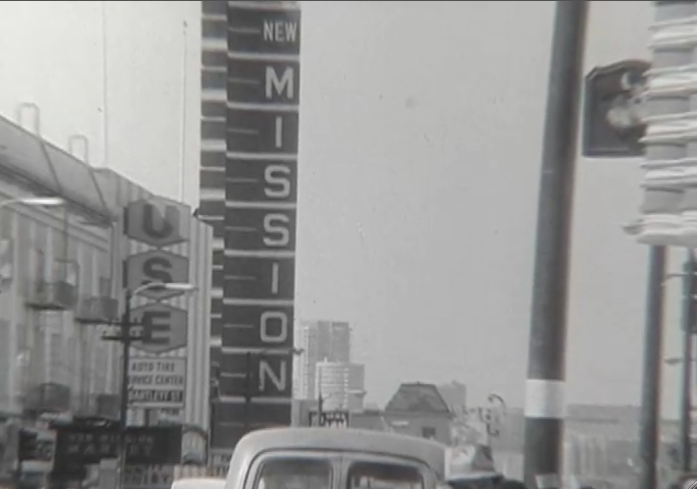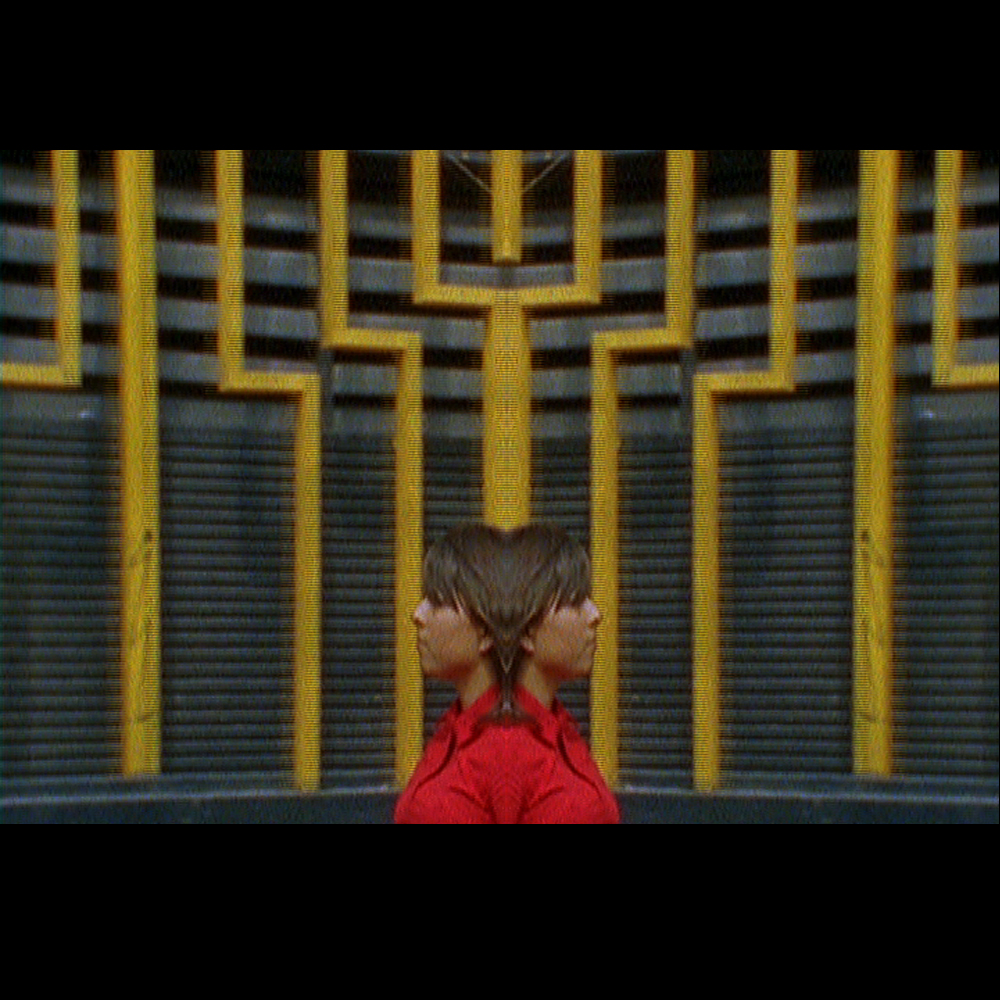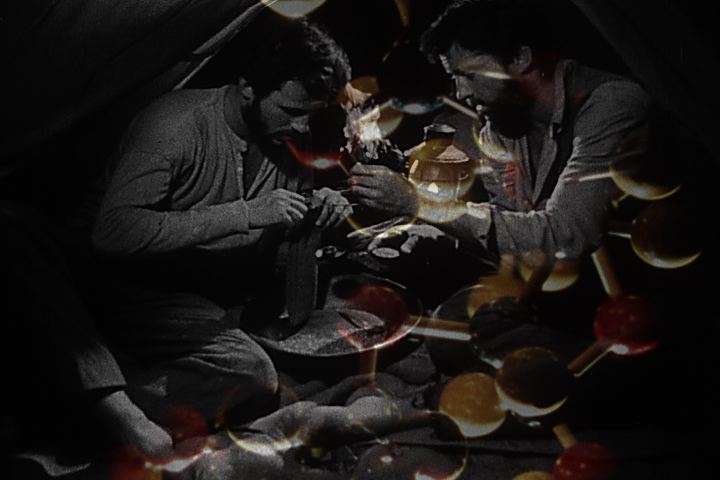La Caca Colectiva was formed ten years ago by Bay Area filmmakers Angela Reginato, Vero Majano, and Dolissa Medina. The collective was interviewed recently by Jenna Grant, an anthropologist based in Amsterdam.
Jenna Grant: I think of collectives as a counterpoint between different personalities, but there is a shared vocabulary. I was wondering what that vocabulary is for you in relationship to what you’re working on now.
Dolissa Medina: My new project is called “Small Town Turn Away” and it looks at my relationship with an older cousin who died of AIDS during the 1980s. I had little interaction with him yet he holds a mythical presence in my memory, if not in my actual past. I’ve started researching my high school archives, and it’s been interesting to realize that the way the narrative is constructed in your memory is very different from the facts. So I’m interested in telling that story and weaving it with interviews with gay men in their 50s who migrated to New York, San Francisco, and London and who survived the AIDS epidemic. The point of intersection is the song “Smalltown Boy” by Bronski Beat. It’s a collage essay film with archival footage, which is part of that shared vocabulary I have with the Colectiva. That vocabulary includes exploring archival images of cities in our storytelling.
Angela Reginato: The current project is called “ROMA 80” and it’s about Rome and terrorism in the 1980s. The project is very much in its early stages. It’s a personal essay, an experimental essay. I’m planning on shooting it on film, and I’m planning on using found materials.
I’m also working on a series of portraits in 8mm film. I’m shooting one role of film per person. I’m not editing that roll of film so I have to live with my mistakes! I’m also leaving the film un-slit so in actuality it is a role of 16mm film and therefore you have four 8mm frames in each 16mm frame. And because of the process in creating a dialogue between the four frames I have to stay very focused while filming as well playing with finding the pattern. I love that way of working.
Vero Majano: One of my projects is my live documentary called “Remember Los Siete,” which uses archives of San Francisco’s Mission District in the 1970s. It’s about seven Latino youth accused of murdering a policeman in 1969 and the activism that arose around their trial. I have the beautiful burden of a lot of wonderful footage to work with but I need to put it aside and just concentrate on the writing. I think one thing we do share is working with a combination of memories and facts and what we thought was fact in our memory. It just seems like when you are working on a project visually and you are remembering something, the footage is so much longer in your memory but then you actually find the fact or the photo or the footage and you realize how short it is and wonder what are you going to do with that.
JG: Yeah, about footage being so much longer in your memory, I see some of the Colectiva’s work as trying to explore what makes it seem long–in terms of emotions that inform that one particular story for example–and then dealing with that disconnect. The other thing I’ve seen is that music is a really central aspect of your work.
AR: I think that for all of us because we’re working with memory, it’s such a central thing. Music to me is like a portal to a specific time and place.
VM: In my film “Calle Chula” I use oldies. My film showed at UC Santa Cruz and there was this Latino family sitting in front. When the film was done the daughter told me: “my dad really liked your film. He used to listen to that music in our garage when we were little.” I like that connection. Maybe they won’t understand my film, but they like the oldie where it takes them back.
DM: I think for me with “Smalltown Boy”, like Vero said, it’s a way of connecting with people. I’m fascinated with exploring how it may works as a trigger for a gay man who lived that story, but also with treating the song itself as a formal element to explore questions of sanctuary and escape.
JG: This idea of the productive space between the facts and the memory of the facts – there’s an echo of that in the music. There’s a personal experience and then a much more collective experience in music. Your pieces are tapping a personal history vs. collective history and both images and sound are approaching that in different ways.
DM: That’s probably why we respond so strongly to found footage as a source for exploring personal and collective memories. We actually maintain a collection of 400 ephemeral films. I’m happy that as a group we’re committed to preserving our media heritage, even if it’s something as basic as paying shared rent on a storage unit. I joke that it’s my way of staying connected to San Francisco, that I’m still paying rent in SF. [Medina lives in Germany]
VM: That’s all you can afford!
AR: That’s where you’ll have to live next time you come to town!
JG: How did you start? Was it around the archive itself? Didn’t you do some actions also?
DM: The archives came later. But we did do some art interventions back in the day.
VM: During the invasion of Afghanistan we walked through BART trains playing Marvin Gaye’s “What’s Going On?” on a boom box. We passed out the lyrics to riders and asked them “What would Marvin say?”
AR: Another time we made little stickers that said “America please stop eating – This is a message from the Caca Colectiva, cuz we give a shit.” I was kind of obsessed with that for a while.
DM: And we did street karaoke on the corner of 16th Street BART during Valentines Day. We passed out nickel bags with candy hearts that had the word “CACA” printed on it, “cuz Love’s the Shit.”
VM: Another thing we did was give each other Caca nicknames.
AR: And the boldest of us have Caca tattoos. We won’t say which ones.
DM: I also wrote a punk song about us that was recorded by Angela’s sister’s band in Spain. We also have Caca shirts and stamps and Mexican shopping bags.
VM: Our shit is serious.
DM: Yeah, it’s kind of funny because the films are serious and depressing, but between us there’s a lot humor.
VM – I’d just like to say that the slogan I like to say about Caca is: Sometimes you’re the shit, and sometimes you’re just shit.
To read outtakes from this interview and watch video excerpts, visit www.cacacolectiva.com



